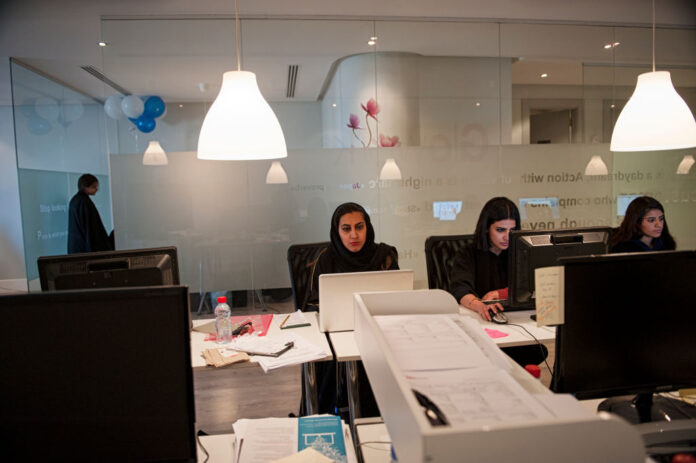Saudi Arabia was among the top countries in the Middle East and North Africa for new venture capital deals in the third quarter of 2021 with startups in the Kingdom raising SR769 million ($205 million) from 91 deals.
It is a 439 percent hike as compared with the figures of a year ago during which business activities were affected by the coronavirus disease pandemic, according to the KSA venture investment report from startup data platform MAGNiTT.
In the MENA region, Egypt topped the list with 96 contracts while the UAE also recorded 91 deals during the same period.
Growth
Commenting on the report, Saud Al-Sabhan, vice governor for communications at the General Authority for Small and Medium Enterprises, Monshaat, told Arab News: “The total VC investment reached $376 million in the first three quarters of 2021, already more than double of what was reported in the entire 2020.”
The authority was founded in 2016 to boost the contribution of small and medium enterprises to the gross domestic product to 35 percent by 2030 as against the current 20 percent. The authority established the Saudi Venture Capital Co. in 2018 to support venture capital investment by backing funds and co-investing with angel investors in high-growth startups and small firms.
Al-Sabhan said the authority uses a wide range of funding initiatives to boost backing to small firms, which are further broken down by a company’s size and type.
Facilitator
He said Monshaat is not a lender itself but facilitates funds from the public and private sectors.
“Entrepreneurs and SMEs alike can access our core funding opportunities by visiting the authority’s website. We offer a funding platform to connect SMEs with commercial and public lenders,” the official told Arab News.
He said: “Increasing entrepreneurship is a trend we are witnessing globally, but it must be enabled at the level of government policies to ensure the protection of the Saudi economy and revenues from fluctuations that will especially affect non-oil revenues through fiscal policy decisions.
“Monshaat itself, as a government-funded entity, is dedicated to the growth and empowerment of emerging enterprises through many studied initiatives and policies that it offers.”
The body also encourages links between universities and businesses.
Al-Sabhan said: “What links academia and entrepreneurship, in general, is that universities around the world often provide a unique and trustworthy atmosphere for entrepreneurs who are still in the early stages.
“These entrepreneurs often require continuous support and guidance, in addition to an environment where they can test their prototypes and go through a smooth phase of multiple iterations (of a project).
“Given our role of enabling entrepreneurs and SMEs around the Kingdom, we are continuously working to bridge the gap between them and universities. We currently lead several initiatives in this regard, such as our collaboration with King Abdullah University for Science and Technology.”
KAUST, a private research university based in Thuwal on the Red Sea coast, was established in 2009 to conduct “curiosity-driven and goal-oriented research to address global challenges related to food, water, energy, and the environment.”
Al-Sabhan said KAUST and Monshaat have been able to provide a different set of services, such as workshops and mentoring sessions for entrepreneurs and funders.
KAUST will also partner with the authority for the second year in a row on the 2021 Ebtakir Awards. This annual award held by Monshaat in Riyadh highlights the most innovative startups in the Kingdom. Prize money is split between three finalists — with SR150,000 going to the winner, SR100,000 for second place, and SR50,000 awarded to the third best startup of the year.
Foreign investment
The body also has a role in attracting foreign investment to the Kingdom.
Al-Sabhan said: “We have qualified local talent and vast opportunities for high growth and are beginning to see demand for our foreign entrepreneur licenses. Foreign-owned or registered firms are vital in diversifying and internationalizing the economy, and Monshaat can assist in registration, office spaces, and business advisory.”
“The investment climate has greatly improved in Saudi Arabia over the past several years for foreign businesses. Enhancing transparency, allowing 100 percent foreign ownership of an investment, reducing licensing process and cutting the red tape.”
In October, the Kingdom said it had licensed 44 international companies to set up regional headquarters in Riyadh, including Unilever, Baker Hughes, and Siemens.

